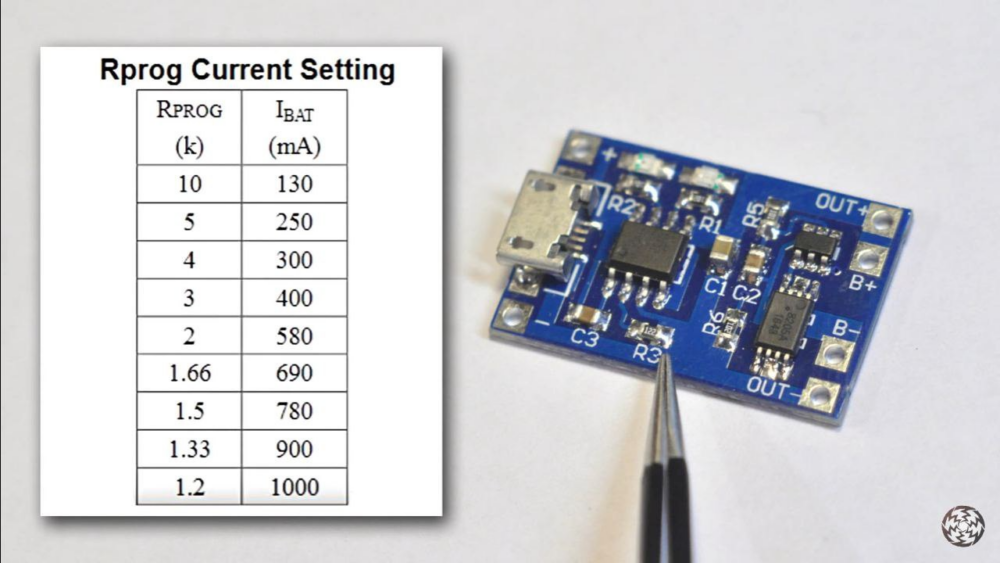Lithium-ion batteries are the primary power source for many electronic devices, from smartphones to electric vehicles. Such rechargeable batteries have a number of advantages over traditional rechargeable batteries. Namely:
- including higher energy density;
- longer service life;
- faster charging time.
In the article, we will look at what lithium-ion batteries are, their key features and the basic rules for charging them. Based on our wholesale, we will share with you some tips for properly charging Li-ion batteries.
What is a lithium lithium battery

A lithium-ion battery is a rechargeable battery that uses lithium ions as the main energy source. Each cell of a lithium-ion battery contains a positive electrode (cathode), a negative electrode (anode), and an electrolyte. When the battery is charged, lithium ions move from the cathode to the anode, and when it is discharged, the reverse process occurs — the ions move in the opposite direction.
Features of lithium-ion batteries
- High density. Due to their high density, lithium-ion batteries can have a large charge capacity in a smaller package.
- Longer service life. Thanks to this feature, lithium-ion batteries have become widely used in electronics as the main power source.
- Fast charging up to 100% capacity. There are batteries on the market that can charge up to 100% in 30 minutes (source). Of course, the speed depends on the type of charger you use, the more powerful it is, the faster you will charge your battery.
- Low self-discharge. An important feature of lithium-ion batteries, which allows them to be used in industrial and medical devices.
Basic rules for charging lithium-ion batteries

Since we have a wealth of experience with these types of batteries, we have decided to give you some basic lithium-ion battery charging guidelines to follow to ensure their longevity and safety.
- We strongly recommend using only certified chargers. It is not safe to charge a lithium-ion battery with a charger designed for Li-Fe batteries.
- Do not overcharge your battery. We have encountered situations where some devices do not have charging cutoff relays when the battery is fully charged. Therefore, make sure to remove your battery from the charger in time if your device does not automatically stop charging.
- Do not discharge your battery to 0%. This is one of the most important rules. We have seen cases where batteries that were repeatedly discharged to 0% significantly lost their capacity. It is recommended not to go below 20%.
- Never overheat a lithium-ion battery. This type of battery does not like overheating. The same applies to cold – in the cold they are discharged faster.
How to choose a charger for lithium-ion batteries?
Compatibility. We advise you to pay attention to the maximum current of the charger, as well as its supported battery types (for example, Li-ion, LiPo or LiFePO4). You should not charge a Li-ion battery with a charger that is designed to charge LiPo batteries.
Charger power. Choose a charger with enough power to quickly charge your battery. Power is usually measured in watts (W) or amps (A). If you are charging 18650 batteries, I recommend charging them with a current no higher than 2A. Also, you need to take into account that too high power can damage the battery, and too low can lead to slow charging.
Protective functions. A good charger should have certain protective features to prevent the battery from overcharging, overheating, or short circuiting. For example, some chargers have a function to turn off the charging process when the battery reaches 100% charge level. This feature will save your battery from overcharging. There is also a reverse polarity protection option.
Intelligent features. Some chargers can automatically detect the type of battery, optimally regulate the charging current, and automatically shut off when fully charged. These features provide ease of use and can improve charging efficiency.
FAQ
Q: Are lithium ion batteries safe?
A: Yes, they are absolutely safe. But we want to note that low-quality batteries can explode during the charging process. We recommend using only trusted brands of batteries.
Q: Can I use any charger for my lithium ion battery?
A: No. To safely charge a lithium-ion battery, you must use a special charger designed to charge lithium-ion batteries.
Q: How often should I charge the Li-ion battery?
A: It all depends on the specific battery. Typically, the manufacturer indicates the number of cycles after which the battery capacity is significantly reduced.
Q: How long do lithium-ion batteries last?
A: We cannot give you a specific date. It all depends on the quality of the battery, the parameters of its operation.



